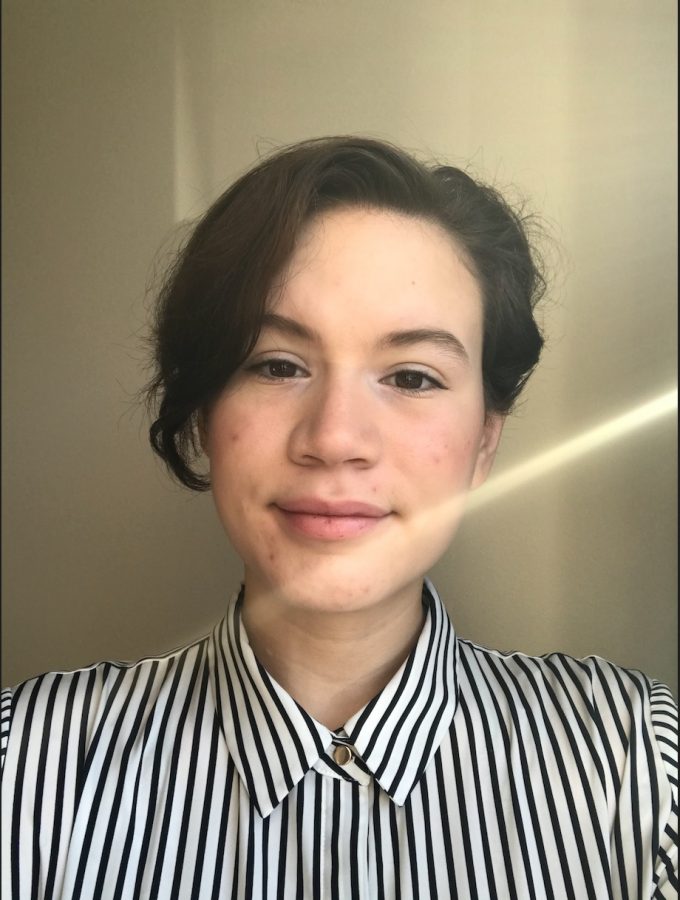WSU undergrads receive awards during national STEM conference
Students used ePosters to present research over Zoom; conference provides networking, professional development
Jenna Pederson, senior general studies in biological sciences major, said she is interested in studying animal behavior and conducting drug research.
December 7, 2020
Two WSU students received a $175 award each for their undergraduate research projects during an annual national STEM conference.
Seniors Jenna Pederson and Ezra Mead attended the Annual Biomedical Research Conference for Minority Students on Nov. 9-13.
The conference was held virtually this year due to the pandemic, said Mary Sanchez Lanier, conference judge and professor at WSU’s School of Molecular Biosciences. Ten WSU undergraduates attended the event, and three presented.
The conference provides networking and professional development workshops to students, she said. It also allows students to share their research.
“I think that’s hugely important because students bring together this body of work that they’re doing,” Sanchez Lanier said.
Jenna Pederson, senior general studies in biological sciences major, said she has always been intrigued by science and research. She took many advanced placement and honors STEM-related courses in high school.
Pederson said her passion for science led her to pursue undergraduate research at WSU. She is interested in studying animal behavior and conducting drug research.
During the conference, Pederson presented her research titled “Can Human Pain be Modeled in a Rat?” Her research received an award in the physiology and pharmacology category. She said her research examines rats’ burrowing activity when experiencing inflammatory pain in their back paws.
In the span of five to seven days, she and other researchers looked at how much burrowing the rats were able to perform. Part of her research analyzes how to reverse the lack of burrowing activity with pain relievers, Pederson said.
“When you are in extreme pain, you lose motivation to do anything,” she said.
Rats were given ketoprofen, which is an anti-inflammatory drug similar to ibuprofen, Pederson said. The rats were able to burrow more effectively than when they were given morphine, which is a sedative drug.
“The higher the [morphine] doses, you get more drowsy,” she said. “We should really lean away from drugs that show sedation because we want people to just be relieved of pain so they can get through the day.”
Ezra Mead, senior genetics and cell biology major, said he grew up in a supportive community and family. He said he has been involved with different STEM programs since middle school.

“I’ve always been a very curious person,” he said. “I just want to know more about the world and how the world works.”
Mead said he wants to have a “visible impact” with research and believes he can achieve that in disease research.
His research project is titled “Characterizing the Role of Insulin-mediated Immune Signaling During West Nile Viral Infection in Diabetic D. melanogaster Models.” It received an award in the immunology category.
In Mead’s research, he studies how mosquitoes can transmit the West Nile virus without dying. His research specifically analyzes the mosquitoes’ immune response to the virus.
“[My research] can definitely lead to … finding a way to control that transmission,” he said.
Because of the pandemic, students had to record their presentations beforehand and submit their research posters as ePosters, Sanchez Lanier said. ePosters allow students to present their research digitally.
She said presentations were limited to five minutes. Students had to include information about their research’s goals, hypothesis, methods, results and conclusions.
“It’s a tough job because … they are presenting what they have there in a very short time frame that is going to be clear and understandable,” Sanchez Lanier said.
This was the first STEM conference Mead and Pederson attended, they said. They were going to attend WSU’s annual Showcase of Undergraduate Research and Creative Activities last semester, but the conference was canceled due to the pandemic.
Graduating this December, Pederson said she plans to apply to a post-baccalaureate program where she can work in a lab. She plans to attend graduate school afterward.
Mead will be graduating in the spring. He said he will pursue his doctorate in molecular biology at WSU.










